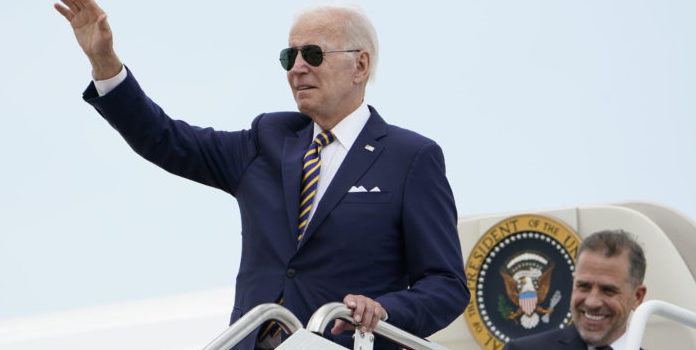(Molly Bruns, Headline USA) President Joe Biden posted an image to Twitter, showing what appears to be a text or social media message thanking him for loan forgiveness.
The message read, “Thank you Mr. President. At 51 years old, my husband and I can finally start saving for our first home.”
Take a look at this message I received – because of student loan forgiveness, Americans will be able to crawl out from under unsustainable debt and finally start thinking about saving for their first home. pic.twitter.com/vqea37GKis
— President Biden (@POTUS) September 3, 2022
According to The Post Millennial, social media users were quick to critique the message, questioning its content and credibility.
The president did not say where or who the message came from. On Twitter, Biden’s official profile is set so he can only receive direct messages from users that he follows—he only follows twelve people.
Needless to say, many were skeptical.
This text is clearly fake.
Even the heart emoji ❤️ https://t.co/BpoXdqMerK
— Kimberly Klacik (@kimKBaltimore) September 4, 2022
Things are so bad for the White House’s student loan bailout that they’re photoshopping texts Biden is pretending to receive https://t.co/Uf5So7LPPq
— Matthew Foldi (@MatthewFoldi) September 4, 2022
Several people also pointed out many other Americans who never attended college are helping pay for these people’s home.
Thank you Mr President for raising the retirement age to 100 https://t.co/kUYGG16MMb
— zerohedge (@zerohedge) September 4, 2022
So working class Americans who never went to college are helping to pay for their home. https://t.co/abvvGPFgIK
— Marc Thiessen 🆓🇺🇦 (@marcthiessen) September 4, 2022
This person is as old as you’ve been in government. Which goes to show how little you’ve done for half a century that a single text message is all you have to show for yourself. You are worthless.
— Five Times August (@FiveTimesAugust) September 3, 2022
Biden’s recent announcement that he would be canceling up to $10,000 in student debt for borrowers, which will cost taxpayers a minimum of $300 billion over the next ten years.

